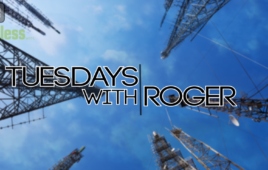The FCC on Wednesday said it is planning to add an extra round of bidding per day to the reverse auction schedule in a move one analyst said indicates a slowdown in bidding.
Starting Monday, June 13, the FCC said there will be three one-hour rounds of bidding each day until further notice. Rounds will run from 10 to 11 a.m., 1 to 2 p.m. and 4 to 5 p.m., the FCC said. The auction will continue to run two two-hour bidding rounds each day until that date.
Bidding in the reverse auction entered Round 12 on Wednesday afternoon and is scheduled to reach Round 17 by the start of bidding on Monday.
Recon Analytics’ Roger Entner said Wednesday the addition of another round signals a slowdown in bidding, but noted such an adjustment was typical of auction proceedings.
The FCC on Wednesday said it was also adding more flexibility in the proxy bidding system in the reverse auction by lowering the maximum floor so proxy instructions can last for more rounds.
Previously, the dollar amount bidders were allowed to enter as a proxy instruction could not be less than 75 percent of the price offer for a station’s currently held option. That figure has been dropped to 50 percent, the FCC said.
The FCC also released a public notice Wednesday containing upfront payment instructions for those looking to bid in the forward auction.
According to the FCC, each bid applicant must submit an upfront payment sufficient to purchase eligibility to bid on at least one block in one of the license areas it selected previously. The FCC said the purpose of the upfront payments is to help ensure bidders can actually afford the spectrum they’re bidding on.
Payments are due by July 1, the FCC said.
Payment calculations
The FCC said bidders can calculate their upfront payments by determining the maximum number of bidding units on which they wish to bid in a given round. The total number – which will include all license areas of interest to the applicant – will be multiplied by the number of bidding units per block in that area. That number of bidding units should then be multiplied by $2,500 to calculate the upfront payment.
To help avoid confusion, the FCC has released a chart with the number of bidding units, upfront payment amounts and minimum opening bids per block for the forward auction. The number of available blocks in each market was released in April when the FCC set an auction clearing target of 126 MHz.
For example, if a participant wanted to bid on two blocks of unimpaired spectrum available in New York, N.Y., two blocks of unimpaired spectrum in Los Angeles, Calif., and two blocks in Boston, Mass., a minimum upfront payment of $270.5 million would be required.
By way of explanation: in New York, there are 27,000 bidding units per block. That figure multiplied by $2,500 equals an upfront payment of $67.5 million per block. A bidder seeking two blocks would thus need a total minimum payment of $135 million. In Los Angeles, there are only 20,000 bidding units per block. When multiplied by $2,500, that means a minimum upfront payment of $50 million is necessary per block. A bidder seeking all five unimpaired blocks would then need a minimum upfront payment of $100 million. And in Boston, there are 7,100 bidding units per block, which comes out to a total of $35.5 million for two blocks.
So, the total for a bidder seeking to bid on those 6 combined blocks would need to submit a total upfront payment of $270.5 million.
It’s worth noting that the number of bidding units in the majority of the FCC’s Partial Economic Areas (PEAs) are much lower than the ones listed for New York and Los Angeles.
In Waynesboro, Ga., and Walla Wall, Wash., for example, there is only 1 bidding unit per block of available spectrum, which comes out to a cost of $2,500 per block. That may be the extreme low, but even in a city like Seattle, Wash., where there are 10 blocks of unimpaired spectrum, there are only 4,000 bidding units per block, which equals a per block upfront payment of $10 million.
As of April, the FCC said 99 prospective bidders had successfully completed their applications. To successfully participate in the forward auction, however, those applicants must submit their upfront payments by the July 1 deadline. Those who do not do so will be barred from participation.
Filed Under: Telecommunications (spectrums)




